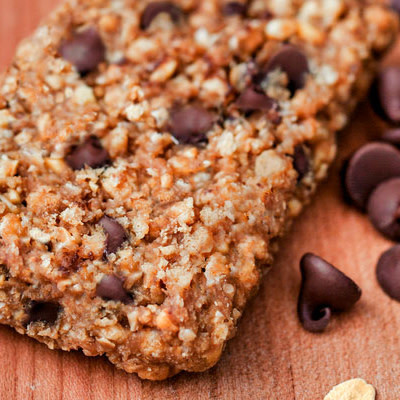The ideas and suggestions written above are provided for general educational purposes only and should not be construed as medical advice or care. The contents of this article are not intended to make health or nutrition claims about our products. Always seek the advice of a physician or other qualified health provider before beginning any physical fitness or health and nutrition related activity.
Gluten used to be a word found only in the vocabularies of food scientists and registered dietitians. But today a friendly conversation over lunch with your co-workers may turn to the topic of gluten in food. Supermarkets are devoting sections of the store to gluten free foods and the options available for those following a gluten free diet have grown exponentially over the last ten years. You may be wondering, “What is gluten anyway and why should I care if it is in my food?
Gluten is a protein found in grains. If you have ever stretched pizza dough or kneaded bread, you have seen gluten at work. It is the component that makes the uncooked versions of these foods fabulously stretchy. Gluten is found in many grains. Wheat, barley, and rye are most commonly recognized for having gluten, and derivatives of these grains – like spelt, couscous, durum wheat, and triticale – also have the troublesome-to-some protein. Foods made from these grains – like pasta, bread, cereal, crackers, and even beer — can also be expected to have gluten. For a more complete list of foods that contain gluten, check here www.csaceliacs.org
Gluten isn’t unhealthy, but for those who must avoid it, it is no joke. Unlike trans fats, it isn’t necessary to avoid or limit gluten unless you are part of the one percent of the population that is burdened by celiac disease, an autoimmune gluten intolerance. The only known solution for people with celiac disease is a strict gluten free diet. You may also choose to avoid gluten if you are one of the increasing numbers of people with gluten sensitivity. Over the past few years it has been discovered that people can have symptoms of gluten sensitivity without having celiac disease.
What is Celiac Disease?
People with celiac disease, also known as gluten intolerance, experience gut-wrenching damage to their gastrointestinal tract, which is a response triggered by their immune system in the presence of gluten.
The damage done to the GI tract is permanent and strictly avoiding gluten is the only way to keep the digestive system healthy. Celiac disease is difficult to diagnose because people can go for some time eating gluten before the obvious symptoms such as diarrhea and cramping begin. It is important not to diagnose yourself with celiac disease. A blood test is done to determine if you have celiac, and if you avoid gluten before the blood test you could receive a false negative. If you are reading this and think you have celiac, before you clean the gluten out of your diet make a visit to your doctor.
What is Gluten Sensitivity?
Some people have what is known as gluten sensitivity (without celiac disease). Symptoms vary a lot and can even be similar to celiac symptoms – bothersome fatigue, bloating, or reflux can be signs. However, it may be hard to diagnose gluten sensitivity because the symptoms can be caused by many other factors in your life. Gluten sensitivity may be uncomfortable but it is not permanently damaging to the digestive system. Yet strict avoidance of gluten is also the only way for gluten sensitive tummies to get RELIEF.
All the talk of gluten has piqued the interest of those who are neither intolerant nor sensitive, and it has left them wondering if they too should adopt a gluten free menu. There is no reason to avoid eating gluten if you don’t fall into one of the two categories described above. However, there are people who claim that they simply feel better with the gluten out of their diet.
Eating gluten free has gotten easier with more gluten free foods available than ever before, but it is still very restrictive. If you are following a gluten free menu, be sure you are finding alternative sources of fiber and B vitamins.
There are many foods out there that are naturally gluten free that are also very healthy additions to your daily diet. Fresh fruit and vegetables, lean meats and fish, beans, rice, and the ancient grains of amaranth and quinoa are also good adds to the menu. People are often surprised to learn that buckwheat, despite the name, is OK on the gluten free plan.
The question of whether oats can be tolerated by the gluten intolerant and sensitive is a common one. It seems that the majority of adults with these conditions can tolerate small amounts of uncontaminated oats. But finding uncontaminated oats in today’s food supply is very difficult. Often times wheat crops are alternated with oat crops and they share equipment and storage facilities. It is difficult to find clean oats, but not impossible. If you are craving a bowl of gluten free oatmeal you can look here for more resources: www.csaceliacs.org
Whether you have celiac disease, gluten sensitivity, or just simply don’t want to eat gluten, knowing your options will allow you to stick with your gluten free lifestyle. Here are a few good resources to inspire you:
www.celiac.org www.celiacchicks.com www.glutenfreedietitian.com www.glutenfreegirl.blogspot.com



